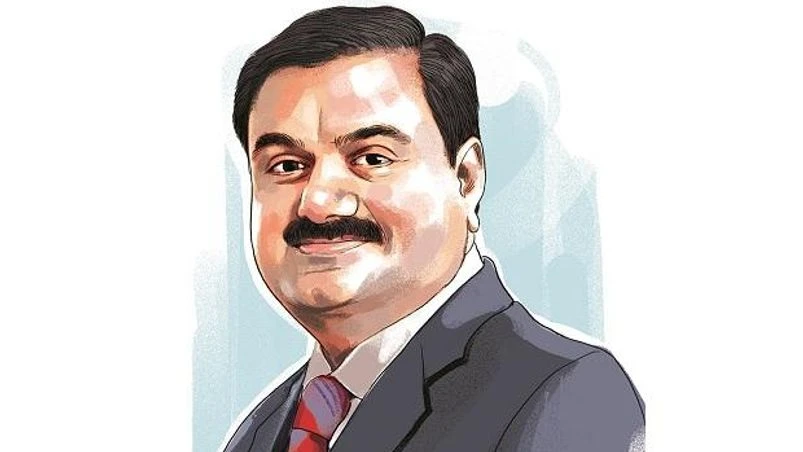 What explains Gautam Adani's meteoric rise?
What explains Gautam Adani's meteoric rise?
Coal mining tycoon Gautam Adani became Asia's richest man for a short while, surpassing RIL Chairman Mukesh Ambani. What is behind Adani's success? Take a peek into his growth path
Krishna Veera Vanamali New Delhi
)
Illustration: Ajay Mohanty
While Reliance Industries Chairman Mukesh Ambani continues to top India’s billionaire league table, Adani Group Chairman Gautam Adani is closing the gap with his fellow Gujarati faster than ever.
Calculations by Business Standard put Gautam Adani’s net worth at $92 billion, compared to Mukesh Ambani’s $108 billion.
But unlike Ambani, Adani is a first-generation entrepreneur which makes his success all the more remarkable.
It took just three decades for him to build a group whose seven listed companies command a combined market capitalisation of $153 billion today.
Edible oil company Adani Wilmar on Tuesday became the 7th group company to list on stock exchanges.
In 1978, at the age of 16, Adani moved to Mumbai to take a chance in the diamond trade, before moving back to Gujarat to help run his brother’s plastics factory.
In 1988, the Adani Group was born when the 59-year-old college dropout set up the group’s flagship company Adani Enterprises to import and export commodities.
With a core philosophy of ‘nation building’, the group has come to be known for its scale and execution. It has diversified into two dozen businesses, many of which are among the largest in India.
Here is a snapshot of its seven listed companies.
Adani Ports and Special Economic Zone is India’s biggest private port operator, with its 13 ports and terminals dotting both eastern and western coastlines.
Adani Enterprises is India’s biggest coal trader, the biggest coal mining contractor as well the biggest private airport operator, with eight airports in its kitty.
Adani Green Energy is one of the world’s largest solar power developers, Adani Transmission is the largest private sector transmission and distribution company in India and Adani Wilmar is the country’s biggest edible oils brand.
Adani Total Gas operates the largest city gas distribution business in India and finally, Adani Power is the largest private thermal power producer in India.
The infrastructure empire is also present in solar manufacturing, logistics, industrial land, defence and aerospace, fruits, data centres, road and rail, real estate and lending.
Seen as politically well connected, Gautam Adani has emerged as the leader in infrastructure, a sector where many a businessman burnt their hands.
The group’s expansion has been fuelled by debt since it bets on capital-intensive sectors. The total outstanding debt of the listed group companies is estimated at $20 billion.
There are also concerns about whether the valuations of some of the group companies are in the bubble territory. The collective trailing 12-month revenue of the group’s listed stocks, excluding Adani Wilmar, is $14.5 billion whereas their combined profit is just $1.14 billion. However, the collective market value of the six stocks is $148 billion, giving rise to questions on whether the stock prices are detached from fundamentals.
Valuations notwithstanding, Adani’s recent push into green energy has been the biggest contributor to his wealth gain. Shares of Adani Green Energy have surged over 5,500% in the past three years and at $40 billion, it has become the group’s most valued company.
Whether the valuations will sustain or not depends on whether Adani’s track record of entering into potential sectors at the right time continues into the future while pursuing his lofty digital and renewable energy ambitions.
Watch video
Also Read
Don't miss the most important news and views of the day. Get them on our Telegram channel
First Published: Feb 10 2022 | 8:30 AM IST

